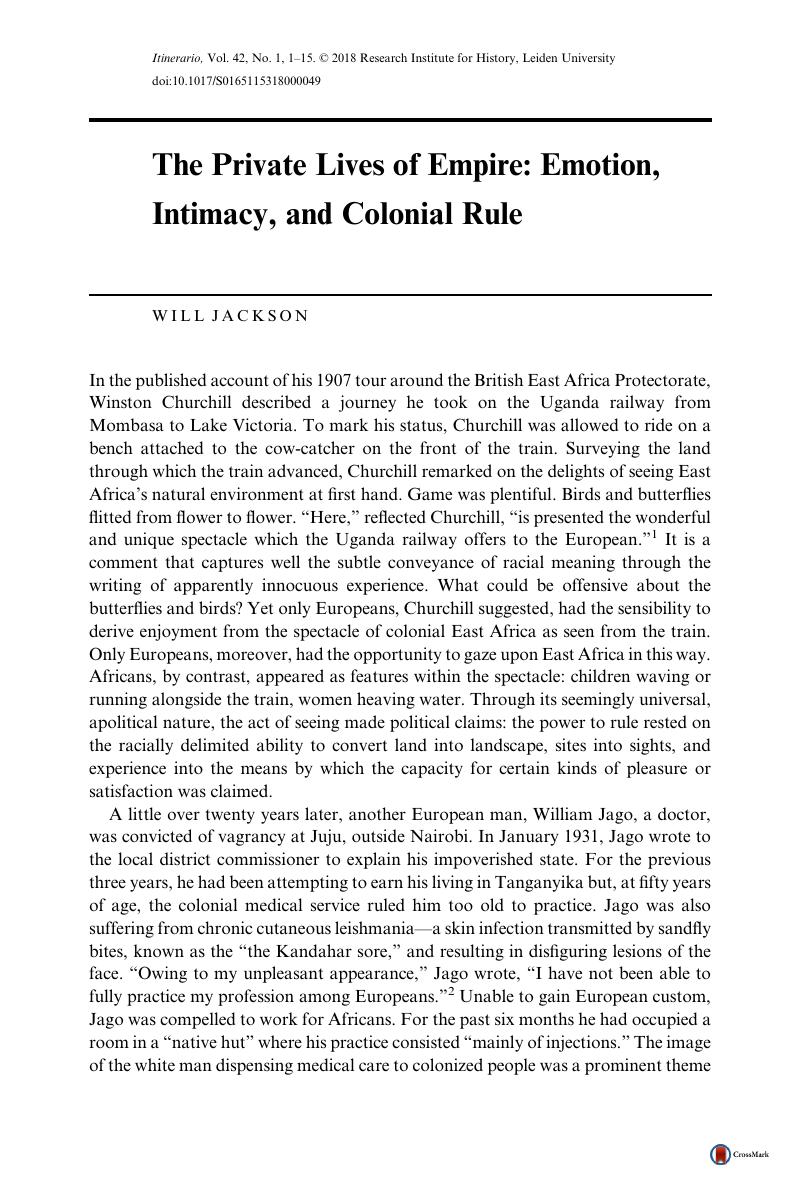Crossref Citations
This article has been cited by the following publications. This list is generated based on data provided by Crossref.
Wu, Juanjuan
2021.
“A Broken Journey”: Emotions, Race, and Gendered Mobility in Mary Gaunt’s Narratives of China.
Women's Studies,
Vol. 50,
Issue. 7,
p.
727.
Reimóndez, María
2022.
Gender, Displacement, and Cultural Networks of Galicia.
p.
121.
Choi, Sarah Y.
Liu, James H.
and
Belgrave, Michael
2022.
Performing identity entrepreneurship during the colonisation of New Zealand: A rhetorical construction of ‘loyal subjects of the Empire’.
Journal of Social and Political Psychology,
Vol. 10,
Issue. 2,
p.
760.
Cooper, Nathalie
2023.
“Internal Frontiers”: Whiteness, Intimacy, and the Expatriate Home in Britain's African Colonies during the Postwar Period.
Itinerario,
Vol. 47,
Issue. 1,
p.
110.
Haines, Daniel
2024.
Heroic Fear.
Environmental Humanities,
Vol. 16,
Issue. 1,
p.
162.



